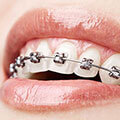Dental Myths and Facts
It's important to debunk dental myths to ensure accurate information about oral health. Here are some common dental myths:.
Myth: Sugar is the sole cause of cavities.
Fact: While sugar can contribute to tooth decay, cavities are caused by a combination of factors, including bacteria in the mouth, poor oral hygiene, frequent snacking, acidic foods and beverages, and a susceptible tooth surface.
Myth: Brushing your teeth harder or more often cleans better.
Fact: Brushing harder can damage the tooth enamel and irritate the gums. It's recommended to use a soft-bristled toothbrush and brush gently in a circular motion for two minutes, twice a day. More brushing does not necessarily mean cleaner teeth.
Myth: You don't need to brush baby teeth.
Fact: Baby teeth are important for proper chewing, speech development, and the alignment of permanent teeth. It's crucial to start oral hygiene practices as soon as the first tooth erupts. Clean baby teeth with a soft cloth or a baby toothbrush and a smear of fluoride toothpaste.
Myth: It's normal for gums to bleed during brushing.
Fact: Bleeding gums can indicate gum disease, which is not normal. It's often a sign of gum inflammation (gingivitis) caused by plaque buildup along the gum line. Proper brushing and flossing, along with regular dental cleanings, can help prevent and treat gum disease.
Myth: White teeth are always healthy teeth.
Fact: The color of teeth alone is not a definitive indicator of oral health. While white teeth can be aesthetically pleasing, they can still have underlying dental issues such as decay or gum disease. Regular dental check-ups are essential for assessing oral health beyond tooth color.
Myth: It's normal for dentures to become loose over time.
Fact: Dentures should fit properly and comfortably. If dentures become loose, it may be due to bone loss or changes in the shape of the jawbone. It's important to consult a dentist for adjustments or relining of dentures to maintain proper fit and function.
Myth: Flossing isn't necessary.
Fact: Flossing is crucial for removing plaque and food particles from between the teeth and along the gumline. It helps prevent gum disease and tooth decay. Brushing alone cannot adequately clean these areas.
Myth: Bleaching weakens teeth.
Fact:Teeth whitening, when done properly and under professional guidance, does not weaken teeth. The active ingredients in whitening products, such as hydrogen peroxide or carbamide peroxide, penetrate the enamel to break up stains but do not harm the structure of the tooth.
Myth: You don't need to visit the dentist if you have no pain.
Fact: Regular dental check-ups are important for preventive care and early detection of dental issues. Many dental problems, such as cavities and gum disease, can be asymptomatic in the early stages. Dentists can identify and treat these issues before they become more serious or painful.
Myth: If gums bleed, it's best to avoid brushing or flossing.
Fact: Bleeding gums are often a sign of gum disease, which is caused by plaque buildup. Continuing to brush and floss gently and consistently can help improve gum health. If bleeding persists, it's important to see a dentist for a proper evaluation and treatment.
Myth: Baby teeth don't matter because they will fall out anyway.
Fact: Baby teeth are important for proper speech development, chewing, and guiding the eruption of permanent teeth. Early loss of baby teeth due to decay or other issues can lead to misalignment and other dental problems in the future.
Myth: Teeth whitening toothpaste can dramatically whiten teeth.
Fact: Teeth whitening toothpaste can help remove surface stains but cannot significantly change the natural color of teeth. Professional teeth whitening treatments provided by dentists are more effective for achieving noticeable whitening results.
Myth: Dental treatments are always painful.
Fact: Modern dental techniques and anesthesia options make dental treatments much more comfortable than in the past. Dentists take measures to ensure patients are as comfortable and pain-free as possible during procedures.
Myth: Chewing sugar-free gum is as effective as brushing.
Fact: Chewing sugar-free gum can stimulate saliva production and help clean the mouth after eating or drinking, but it cannot replace the benefits of brushing and flossing. Mechanical plaque removal is necessary for maintaining good oral hygiene.





